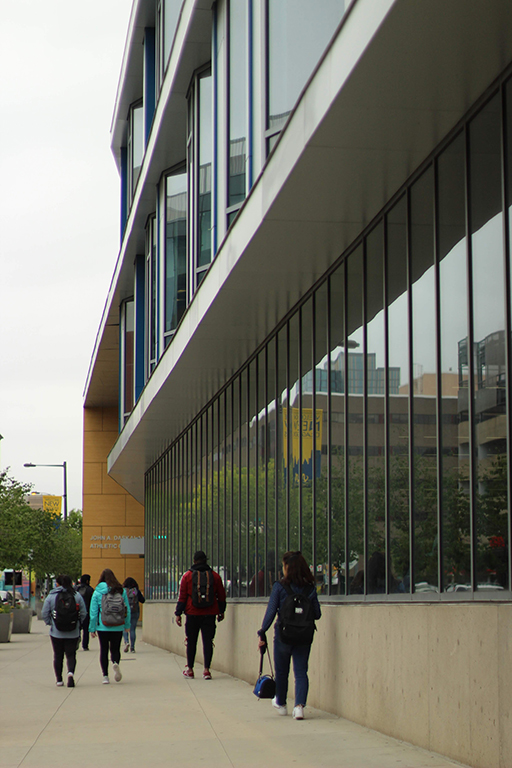
In my three years of being a Drexel University Dragon, one of the things that I’ve found to be extremely important to my success is exercise. I have written about this topic in the past, but it has been nearly a year since the last article I did on exercising, and I definitely have more experience now than I did then.
I took about six months off from working out this year because I was so busy between the end of my co-op cycle and shifting back to the reality of being a Drexel student. Being on co-op and out of classes made me forget just how intensive it can be to have five or six classes in a term, and I quickly fell down a rabbit hole upon my return in spring quarter. I no longer stuck to exercising regularly as I had in my freshman and sophomore years, and I think it was at this point that the effects of not working out started to appear. However, I didn’t really take note of these things until the end of summer quarter this year.
I feel confident in assuming that most people know the general benefits of exercise, but there is one in particular that I wasn’t really aware of when I first started exercising. I think it is important for you to know about if you’re a freshman going into fall quarter this year.
This benefit that I am referring to is improved sleep. You obviously need to be able to sleep in order to do well as a student because constant fatigue will make your daily tasks more difficult. Of course, you can still be an exceptional student that is always tired, but that is unhealthy to say the least. And an improvement in your sleep is something that you will probably notice very quickly, although I didn’t recognize it until I took my break from working out. I started waking up in the middle of the night, every single night like clockwork, and then would struggle to fall asleep again. I would often feel tired in the morning as a result, and that would lead to me not being hungry enough to eat breakfast, which led to me not being able to eat until much later in the day due to being stuck in classes for several hours. These bad eating habits were only one of the issues that I had from not sleeping well. It was also harder for me to study because I would frequently fall asleep while reading my textbook, and I just felt less inclined to actually go out and do things that I would normally have no trouble doing.
According to an article on hopkinsmedicine.org titled “Exercising for Better Sleep,” it’s not completely clear as to how aerobic exercise impacts sleep, but it is clear that there is a connection between the two.
“However, we do know that moderate aerobic exercise increases the amount of slow wave sleep you get,” the article states. “Slow wave sleep refers to deep sleep, where the brain and body have a chance to rejuvenate. Exercise can also help to stabilize your mood and decompress the mind.” And aerobic exercise is just cardiovascular conditioning, something that everybody can do.
With all of this talk, it should come as no surprise that a lack of sleep can directly affect a person’s performance, be it in their job, school work or other responsibilities they may have. In an article on sleepfoundation.org titled, “How Lack of Sleep Impacts Cognitive Performance and Focus,” a correlation is drawn between sleep and our ability to recall information.
“As you sleep, memories are reactivated, connections between brain cells are strengthened, and information is transferred from short to long-term,” the article mentions. “Without enough quality sleep, we can become more forgetful. Studies suggest that sleeping shortly after we learn new information helps us retain and recall that information later.” Along with this, a lack of sleep can make it harder to solve problems, and problem solving is something that every college student needs to do regardless of their major.
You will be doing yourself a major favor if you start exercising at the beginning of your college life as opposed to later, as it is far easier to make commitments early on. The longer you are in college, the more and more responsibilities you will naturally accumulate and the heavier your workload will become, both of which will lead to you probably being less motivated to start exercising later down the road. So start now, drag some of your friends along with you if they are willing and just start with a basic exercise routine that you know you will be able to stick with. You’ll be better rested, study better (and hopefully improve your grades), and your future self will thank you for it.

